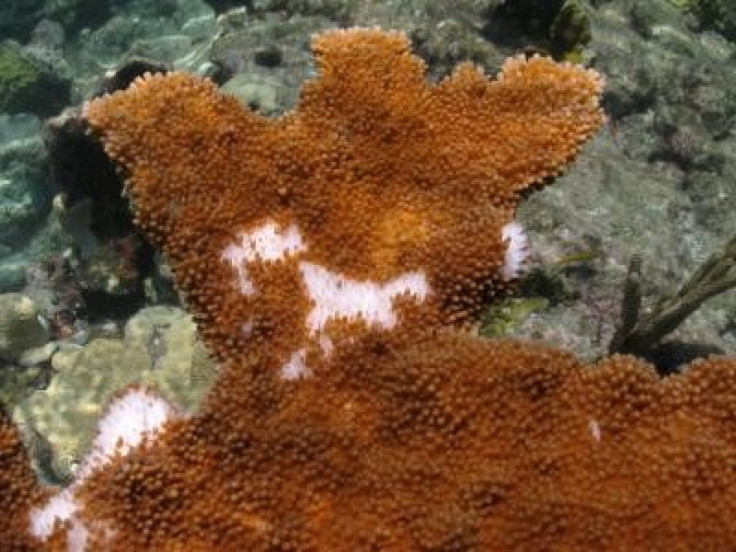Human Feces Killing Coral in Florida Keys

Scientists at Florida's Rollins College and the University of Georgia say that bacteria found in human fecal matter is likely to blame for the dramatic loss of the Caribbean Elkhorn coral.
Elkhorns once flourished in the Caribbean. Now, the branch-like coral, considered one of the most important reef-building corals in the Caribbean, is listed for protection under the United States Endangered Species Act.
The researchers found that human sewage is the source of a coral-killing pathogen that causes white pox disease found in the coral. White pox was first discovered to be affecting coral in the Florida Keys in 1996.
When we identified Serratia marcescens as the cause of white pox, we could only speculate that human waste was the source of the pathogen because the bacterium is also found in the waste of other animals, said Kathryn Sutherland, associate professor of biology at Rollins College.
To make their findings, researchers collected and analyzed human samples from wastewater treatment facilities in Key West, Florida and samples from several other animals, including Key deer and seagulls.
Genetic analyses proved that only the strain from human waste matched the strain found in white pox diseased corals on the reef.
The same bacterium, Serratia marcescens, causes respiratory problems in human beings. When the Elkhorn corals are exposed to it, their soft tissues degrade, leaving behind only the organism's white skeleton.
When researchers inoculated fragments of the Elkhorn coral with the strain found in humans and corals to see if it would cause disease, they found that the coral was stricken in just five days, giving definitive evidence that humans are the source of the pathogen causing the devastating disease.
The researchers argue in their report:
Coral reefs are amongst the most critically endangered habitats on earth. Because population declines of Acropora palmata are caused, in part, by a human strain of the common fecal enteric bacterium, Serratia marcescens, our findings address not only environmental protection, but also the socioeconomic and socio-ecological determinants of coastal zone protection and the cost of wastewater treatment infrastructure.
Throughout the world, corals are facing mass extinction from various causes, including rising temperatures and ocean acidification. Scientists hope to fight back with the small step of minimizing coral-killing bacteria and properly assessing wastewater treatment plans.
© Copyright IBTimes 2024. All rights reserved.












